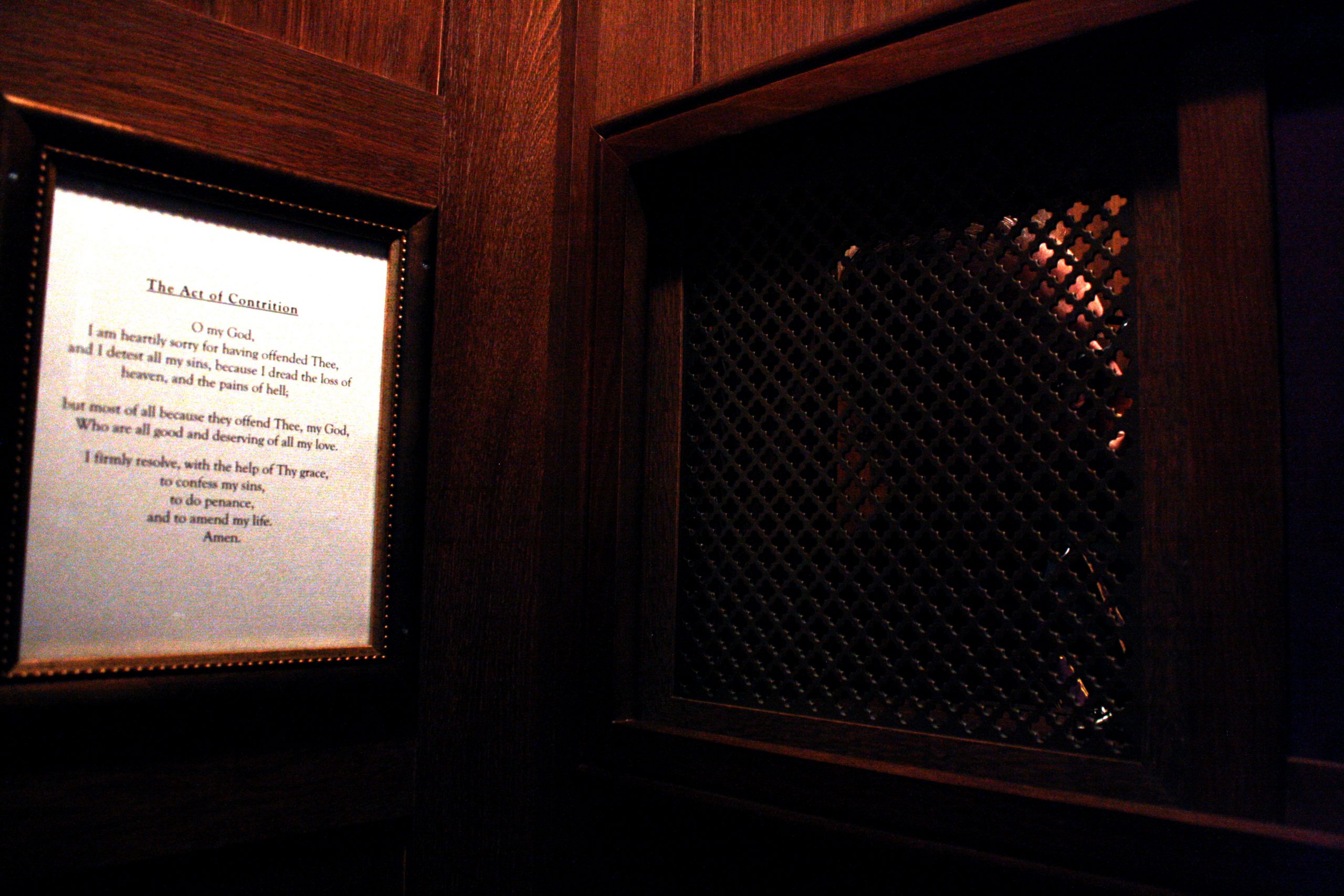
Question:
I just received absolution from my sins through the Sacrament of Reconciliation. As I pledge every Sunday, I do truly believe in the forgiveness of sins. Since I am now sinless, if I die today, do I have a nonstop ticket to heaven or is purgatory still a probable destination?
Answer:
This is an excellent question, in that it touches on a number of different teachings of our faith that many Catholics aren’t as familiar with and can sometimes misunderstand. Therefore, I’d like to take a bit more space in order to address this question and those related teachings.
To begin with, it’s worth addressing the need to have our sins forgiven. This is such a basic truth for us as Catholic Christians that most of us never really take the time to think about it, or to pose the question, “Why do we need to have our sins forgiven?”
It’s important to remember what sin is: it’s an act that we commit (or omit) that goes contrary to what God has revealed to us about how we are to act. But it’s crucial to understand that “what God has revealed to us” is not arbitrary: it’s in accord with how he has made us. When I commit a sin, I am acting contrary to my nature, contrary to what it means to be human. And in so doing, I am doing real harm, real damage to myself, on at least the spiritual level, if not also on the emotional and even physical level.
Remember, God created us, as he created all things. And like the rest of creation, we find fulfillment—happiness—when we act in accord with how he created us. There’s an analogy here with things that we create. Take the automobile: the more a car works in accord with how its creator made it, the better it runs. But if something contrary to its nature is introduced, it doesn’t work as well, or at all. So, if I put orange juice in a car’s gas tank, the car won’t work. I have done something contrary to the manufacturer’s intention, and therefore it cannot fulfill its purpose.
So too with us: when I do something contrary to my nature, to how God created me, I cannot fulfill my purpose, and in so doing, I cannot be happy. When the Church tells us that something is sinful, then, it is not making an arbitrary decision; it’s not as if the pope flips a coin to determine if a particular action is sinful or not. And it’s certainly not the case that the act isn’t sinful until the Church says so.
No, by definition, a sinful act is one that violates my nature as a human being, and therefore does harm to me … damages me.
So, why do our sins need to be forgiven? Because our God, who is both our Creator and Redeemer, wants us to be whole, to be flawless, to be perfect! God wants to forgive our sins for the same reason a mother cleans her child’s cuts and scrapes: to restore them, to heal them. And the first stage of that spiritual healing is the forgiveness of our sins.
There’s another point that’s relevant to this question and to the original question we are addressing in this column: both the forgiveness of our sins and the complete healing of our souls is necessary for us to enter into the glory of heaven.
We read in the book of Revelation that nothing impure will enter into heaven (Rev 21:27). We need to recognize that this is not because God wants to keep us at a distance, such that only the most perfect people will be with him. Just the opposite: God wants us—all of us—to be with him forever in heaven! But precisely because he is all holy, we too need to be all holy in order to be with him as closely as he desires.
In other words, there is a certain acclimation that is necessary for us to dwell with God in all of his glory, and that acclimation entails the forgiveness and cleansing of our sins and their effects on us.
And that brings us back to our question: were we to die immediately after going to confession, would we go straight to heaven? The answer: not necessarily.
As we have seen, in order to enter into heaven, we need to be not just forgiven of our sins, but also healed of their effects as well. Sin is like a glob of grease on our soul. Just as grease leaves a stain on your clothes even after you wipe the grease away, so too does sin leave a stain on our souls even after it has been forgiven. And that stain—because it is a flaw, an imperfection—needs to be cleansed, perfected, before we can enter heaven.
Back to our scenario: were I to die immediately after going to confession, I would go to heaven immediately only if there were no remaining stains left on my soul from the sins I have committed. But if such stains remain, I would go to purgatory.
Here we see that purgatory is, in essence, a place of purification, cleansing, healing. Purgatory is not a place of punishment as much as it is a place of purification and preparation: preparation to see and be with our God who loves us.
Purgatory, then, is the spiritual “place” where, if we die in a state of grace, we are cleansed of any and all spiritual flaws that remain on our souls so that we can enter into heaven in a state of perfection, as Revelation tells us.
It’s worth noting that the existence of such a state is already found implicitly in the Old Testament, in 2 Maccabees 12, which speaks of Jews praying for the deceased. As the Church would later teach, prayer for the dead only makes sense if there is a temporary “place” after death in addition to heaven and hell. After all, our prayers are useless for anyone who’s in hell, and they are unnecessary for anyone in heaven. From very early on, then, Christians took up their Jewish ancestors’ practice—bolstered by what would be written down in the New Testament in places like 1 John 5:17 and Revelation 21:27, as well as 1 Corinthians 3:15 and 1 Peter 1:7, which speak of a cleansing fire and prayer for the deceased. Already in the middle of the second century A.D., we find explicit reference to praying for the deceased, implying that this temporary after-death state must exist.
Again, purgatory is a place of preparation to be with God forever; it is therefore a temporary place. Sometimes people misunderstand the Church’s teaching to mean that it’s a permanent destination for those who go there after death, but that is most definitely not the case. Once all remaining spiritual flaws and faults have been cleansed, they will enter into the glory of heaven.

Be sure to check out the additional resources at sfcatholic.org/answer. If you have a question you need an answer to, email cbassett@sfcatholic.org.
Chris Burgwald holds a doctorate in theology and is the director of discipleship formation for the Diocese of Sioux Falls.


